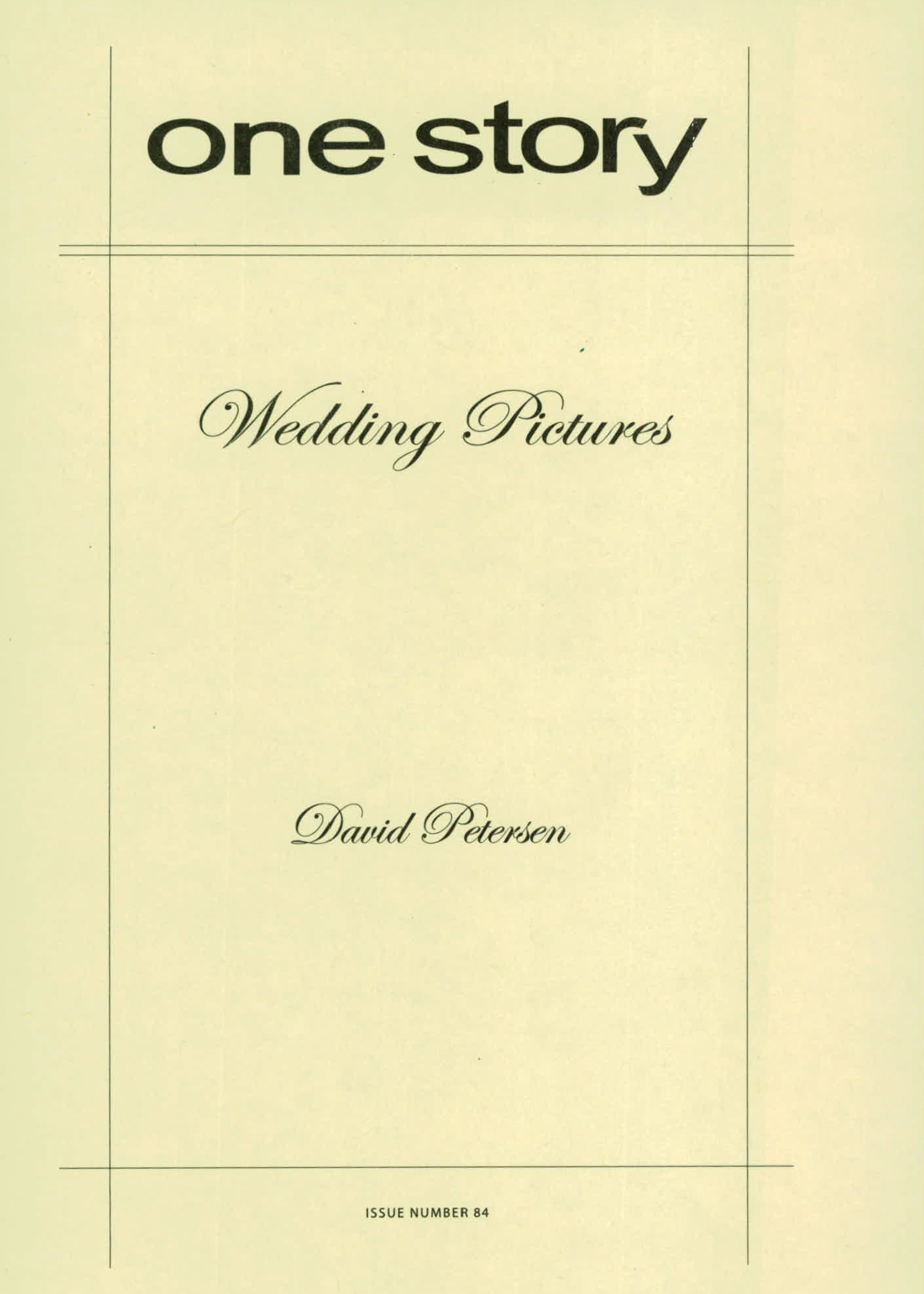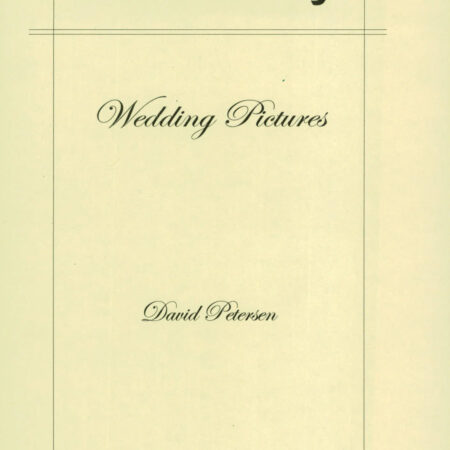
Wedding Pictures
$2.50
49 in stock
Excerpt
Flash, and I see my sister’s teeth. Large white straight teeth rooted solidly in the gums. The photographer has opted to give her the most attention, as if she were still a star, catching her laugh with tanned fingers on a chin, laughing like the tinkling water glasses on the tables, as an old neighbor, Holly Davis, explains that if my sister hadn’t tried to kill Jack Francis in the third episode, she probably wouldn’t have been fired from the series. Robin smiles and looks up at the ceiling, drumming her nails on her throat. She reminds Mrs. Davis that an actress has no control over the script, that the character has nothing to do with her as a person, which Mrs. Davis must certainly know, since Robin grew up in the house next door, and besides they didn’t fire her exactly; they simply wrote her out of the program, for now. Holly Davis nods and assures my sister that some day they will write her back into the show, and that she needn’t worry about what other people thought; Mrs. Davis understood the motivation behind the character, no matter how evil my sister appeared.
David Petersen
David Petersen has been published in literary magazines in the United States and overseas, and has received artist fellowships from Yaddo, The MacDowell Colony, The Blue Mountain Center, VCCA, and The Ragdale Foundation. His screen adaptation of his forthcoming novel I Run and Feel Rain was optioned by Miramax Films and executive produced by David Lynch. David Petersen has received writing commissions from La Jolla Playhouse, Squonk Opera, and is currently working in collaboration with author Alex Kotlowitz on a screen adaptation of his New Yorker profile about two family men who lived a secret life as bank robbers. An Academy Award nominated filmmaker, David Petersen’s films are in the permanent collection of the Museum of Modern Art and the National Gallery of Art.
Q&A by Hannah Tinti
- HT: Where did the idea for this story come from?
- DP: I wrote this in a kind of fever dream during an artist residency at The Ragdale Foundation. At the time, I was going through some upheaval in my life - a former lover had just announced her engagement to a close friend of mine whom she had been seeing while we were together, and both had invited me to their wedding. After graciously declining the invitation, I began writing this story during one of the most sweltering summers on record in Chicago, which happened to coincide with the spawning of the 17 year cicadas, who lie dormant for most of their lifetime then emerge from the ground by the millions for two weeks, only to mate and die. I wrote this in that two-week period on a porch, sweating from the heat while the lumbering insects flew into screens and tumbled down gutters. Somehow this ephemeral mating ritual, combined with the invitation to attend an awkward wedding, produced this story.
- HT: What was the most challenging aspect of writing this story?
- DP: The challenge of writing the story mirrors that of the narrator—to capture a moment of astonishment, beauty, even love, and not feel crippled by its loss as you experience it, or in my case, write it. Perhaps this struggle lies at the root of many writers who must use language to translate an experience that practically dies at the telling. In the words of Robert Hass, “Because there is in this world no one thing to which the bramble of blackberry corresponds, a word is elegy to what it signifies.”
- HT: Do you have any personal experience with the mentally disabled?
- DP: Yes, my brother is mentally disabled, though he never married. Most of the circumstances of the story live in the realm of fiction, including that of his family, so it remains a fractured fairytale for him and for others like him who I have known over the years.
- HT: Why did you decide to make Robin an actress?
- DP: Robin has a long history that precedes this story in which she struggles for recognition in a family of performers, people who want notice at the dinner table for their talent, but can’t seem to get anyone’s attention. The narrator of the story is a musician, the mother a painter, the father a flamboyant speaker, Matthew a figure who demands the attention of the entire family, so Robin tries to distinguish herself as an actress. In this story, the family struggles with stripping themselves of all these facades to witness their collective vulnerability.
- HT: Did the idea for structuring the story around the wedding photos happen before or after you began to work on the piece? What do you think this device adds to the story?
- DP: I began with the first sentence “Flash, and I see my sister’s teeth,” and the rest followed from there. The only thing I knew about the structure before hand is that the story would end with a dance.
- HT: The narrator in this story remains an observer throughout the piece, until the end when he dances. Why did you choose to keep him so far apart from the action?
- DP: I never made a conscious choice about the narrator’s role in the action of the story. Like his family, all of them seem reluctant at first to come together at this strange wedding reception. Chester, the narrator, changes like members of the family as his observations draw him into a vulnerable circle, a place where he dances and tastes the heartbreaking connection to his estranged brother. Like his family, he’s astonished by how Matthew, through circumstance and sheer will, has brought them together for this brief, awkward moment that exposes them all.
- HT: Lucy is a wonderful character, and feels like the emotional center of the story. Was this the plan from the start? How did she develop?
- DP: Like all the characters in this story, Lucy has a long and fascinating history that precedes this appearance, since I have written about her in other fiction, chapters of a novel, a film script, and even a three-act play for La Jolla Playhouse. Sissy Spacek agreed to play her character in a film adaptation of Matthew’s story, so I have done extensive writing about Lucy from many perspectives. Donna Thorton, a woman with a mental disability who is married to Ricardo, a man with a similar handicap, provided some of the inspiration for the strength and humor of Lucy’s character.
- HT: How long did it take you to complete this story?
- DP: First draft: two sweltering weeks during a cicada mating ritual. Completion of the story: years.
- HT: What is the best bit of advice about writing you have ever received?
- DP: Put one word in front of the other and let them walk off the page.
- HT: What are you working on now?
- DP: Final editing of a novel, and a screenplay about two family men who led a secret life as bank robbers.
